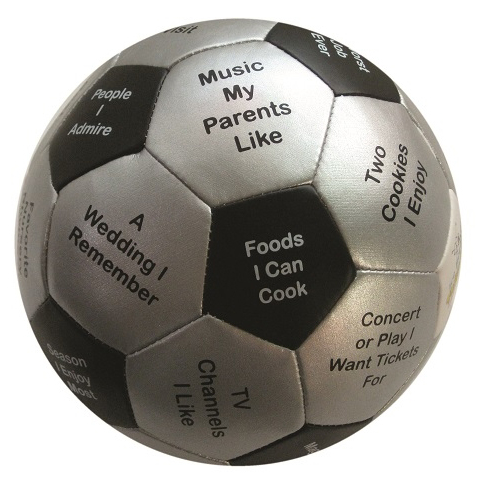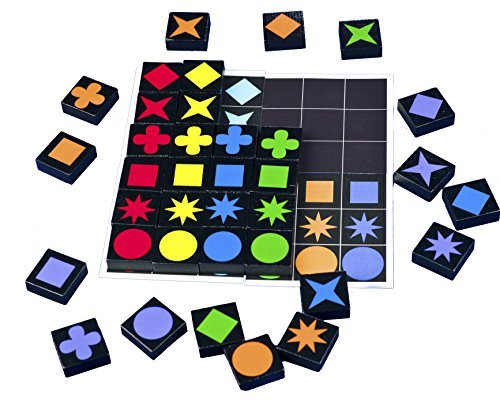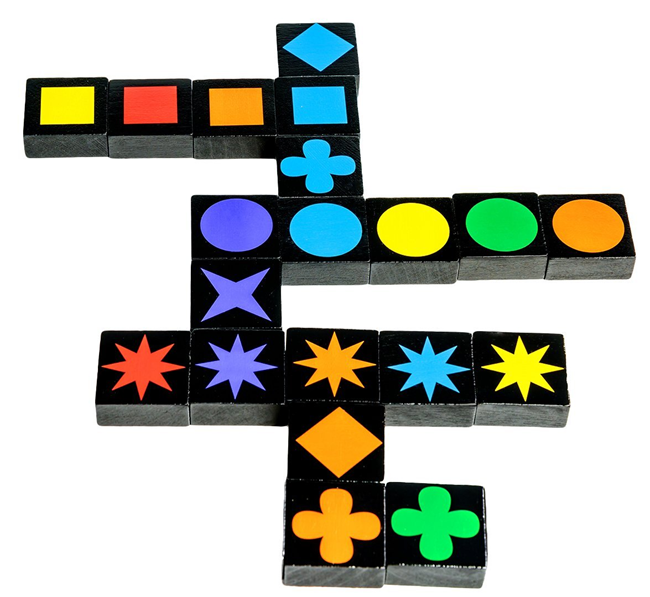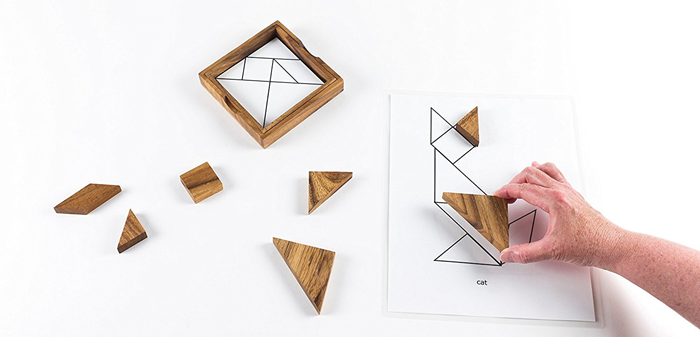
Finding games for dementia suffers can be a time-consuming and tiring task. Realistically, there are many activities that simply won’t work and end up being frustrating rather than enjoyable.
There is also individual variation. This means that some seniors with dementia may enjoy a particular game, while others may find it frustrating or have no interest in it at all.
Nevertheless, finding good games is critical.
Games can be an enjoyable way to pass the time and may provide a social connection as well. Games often provide mental stimulation, helping patients to stay alert and engaged with the world around them.
Thankfully, there are many good options for games, once you know where to look.
These don’t have to be difficult or expensive either.
The sections below detail key categories that you can consider for dementia games, along with some individual products that are out there.
A good general rule is to look for games that are easy to use and to understand, without being confusing. In many cases, you can also use games that are designed for children. But, try to avoid ones where this aspect is obvious, as some seniors may find it insulting.
Senior Memory Games
One important category is senior memory games. These have a significant mental component, meaning that the senior needs to concentrate. Many such games are also suitable for the entire family. This makes them a good way to get everyone together and to do something a little different.
Some such games are designed with seniors in mind. Other are just as suitable for any age group.
A good example is the Thumball Memory Activity from The Alzheimer’s Store (which offers a range of other games too).

This is a physical and memory game where the ball is tossed from person-to-person. Whenever it is caught, that person then needs to discuss whatever topic their right thumb lands on.
The style makes it a group game and it is an entertaining one. It is also a good way to break the ice, especially when people don’t know each other well.
Puzzle Games for Dementia Sufferers
Puzzle games offer another way to exercise the mind. There are many different styles here too and again, some products are designed for dementia patients, while others aren’t.
The product below (from Amazon) is one interesting style to try out.

The game itself is simple, just placing colors and shapes on the correct squares. But, the game has been specifically designed for people with dementia. The bright colors would make the game particularly engaging. It would also work well as a single player or a multi-player game.
Plus, the game doesn’t look like it’s for kids.
This means it won’t be insulting to seniors and they’re more likely to play it. The words dementia and Alzheimer’s aren’t present anywhere on the item or its packaging.
As such, it could be a good choice for stubborn parents.
A similar idea is the game Qwirkle. In fact, the pieces here are almost identical.

Again, the game is extremely visual. The size of the pieces makes this a tactile game and works well for all age groups.
Unlike the previous example, the aim isn’t to place the blocks on a card. Instead, there are multiple different ways that the game can be played.
This game is one that will need to be taught and explained to seniors. Nevertheless, the rules are easy to follow and the idea can work well.
The same pieces can also be used in different ways. For example, some people in later stages may simply use the blocks to create patterns, perhaps matching colors and patterns along the way.
A second style is tangram puzzles. This is a more common option and there are many similar puzzles out there.

Here, the idea is to fit the various shapes into the given patterns. This is another style that doesn’t look childish. In fact, tangram puzzles are popular for many different ages.
The puzzles are also easy to use and follow while being enjoyable overall.
Variations on Regular Games
Another approach is simply versions of regular games. For example, I’ve seen jumbo versions of bingo, tic-tac-toe and connect 4, not to mention many large piece jigsaw puzzles.
For puzzles, the site Puzzle Warehouse is a good place to start. They offer a selection of large piece puzzles for seniors, many of which are pretty.

I especially like how these look like regular puzzles. So, you’re not giving your elderly parent something that looks like it was designed for kids.
For that matter, even normal bingo is a suitable game for dementia patients. It is easy to understand and to follow at all but the latest stage of the disease. Bingo is also highly social.
There are other variations too. Some places will use colors and shapes, rather than numbers and letters (e.g. ‘orange square’ rather than ‘B-12’). Others may use images of specific objects instead.
Because bingo works best with a group, it isn’t an ideal option for games at home. However, many senior centers will regularly run bingo events. It’s worth finding some of these and giving them a try. Even if your family member is resistant – they may find that they enjoy the game immensely.
Other Options
There are many more games out there and you may also be able to create your own.
You can turn to Pinterest for ideas. This board is a good place to start and it focuses on a range of activities, including many that are physical and work well in a group setting,
If you want more than just games, The Alzheimer’s Association also offers a list of 101 activities. Most of these are simple to implement and offer additional ideas that you can try.

Leave a Reply